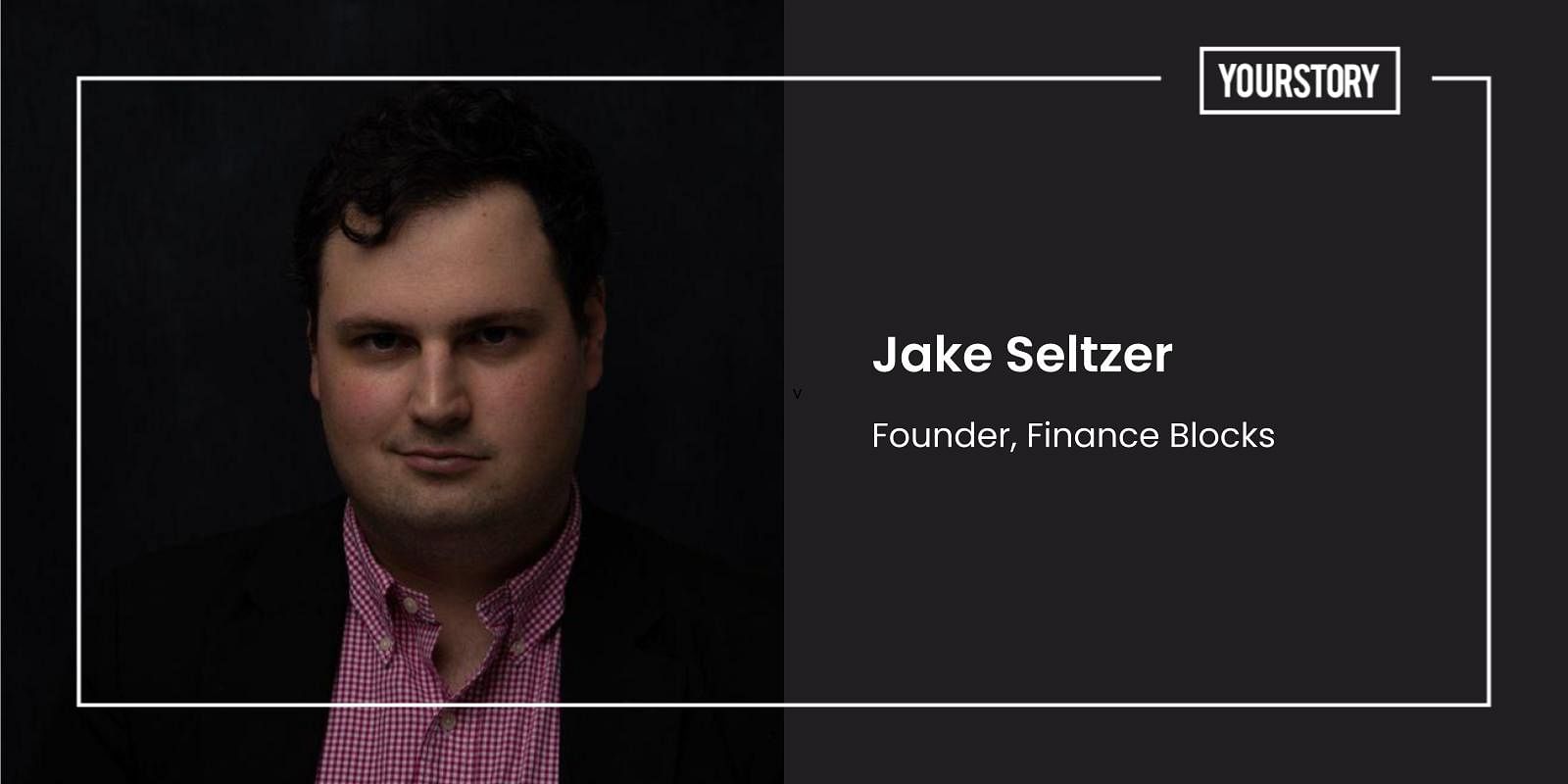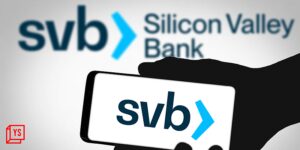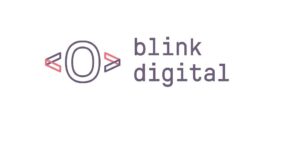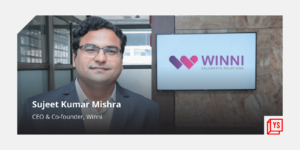Working in international business for over eight years, Jake Seltzer has experience in team building, venturing into new markets, raising venture capital, business development, and execution in the US. Though he was a stranger to the world of finance and blockchain, he had seen that the COVID-19 pandemic and the resultant lockdowns became a powerful booster of digital financial services around the world.
Throughout 2020, a substantial number of new accounts were created worldwide that were equipped with mobile, monetary, fintech, and online banking services. Growth in internet usage, smartphone penetration, and easy-to-setup-and-use financial apps has enabled the rise of cashless societies.
In the same year, he teamed up with Kunal Karani to start – a Los Angeles based, blockchain-powered fintech platform.
“We are aiming to promote financial inclusion of the unbanked by enabling Rural Financial Institutions to maximise their efficiency and impact,” Jake tells YourStory.
Bearing in mind the need to reduce physical contact amid COVID-19, Finance Blocks offers key features for its customers and RFIs such as a mobile application as well as creating a domain name and dashboard to facilitate contactless banking operations.
Why Finance Blocks?
Despite infrastructural and technological developments in the financial sector globally, several media reports suggest, 25 percent of the world’s population still does not have access to basic financial services such as bank accounts.
According to data from the World Bank, India is home to nearly 190 million unbanked individuals who are left out of mainstream financial services.
This population relies on informal financial systems such as moneylenders, cooperative credit societies, and rural financial institutions (RFIs) to access credit in times of need. About 34 percent of the total credit in rural India is provided by non-institutional financiers, mostly professional money lenders and relatives, according to All India Debt and Investment Survey, 2019.
The complexity of procedures and inefficient legacy systems stand in the way of rural consumers’ availing credit opportunities’ and prevent RFIs from maximising their potential. There is often a lack of identity documents, credit scores, and awareness of financial solutions.
To combat these problems in rural economies, Finance Blocks has developed a platform that will serve both RFIs and the unbanked.
“In 2019, I was introduced through mutual connections to Kunal Karani. He explained what would be the initial ideas and core values behind a platform like Finance Blocks. In early 2020, I took a month-long trip to India to meet Kunal to understand the Indian economy first-hand, and see some of the challenges we might face when coming to market,” adds Jake.
The duo shared an empathetic vision and approach to creating a fintech product that could help lift the socio-economic status of millions. This is how the idea behind Finance Blocks was born.
Building the startup
“We began to reach out to government officials who could help define regulations behind these rural financial institutions and started to do analytical market research on how we could create a product that would not only help benefit the rural population but also the financial institutions providing these services,” says Jake.
For RFIs, Finance Blocks has developed a platform that helps them switch from paper-based legacy systems to a secure, easy-to-use, and efficient digital system for all their processes.
Through the platform, Jake says that RFIs create unique digital identities for all their customers, compute their credit scores, manage their financial data, loans, FDs, savings accounts, and more on a single platform. They are also able to amplify the reach of their products and services with the in-built marketing functionalities of the dashboard.
The workings
Finance Blocks also offers an app for users that helps them stay updated about their financial activity such as withdrawals, deposits, transactions, loan EMIs, and interest on FDs. The app provides instantaneous updates about any changes that occur to their accounts with RFIs.
The app also reports information about new financial products and services relevant to the needs of the users. Based on the age of their account and financial activity, users are provided with given Smart Credit Scores computed by blockchain-powered Smart Contracts.
“Blockchain technology is an integral component of the solution Finance Blocks presents. The role of the platform is to enable immutable recording of all transaction data, ensuring transparency and accountability. This will enhance the efficiency of operations by automating banking processes. The use of blockchain also enables RFIs to interact and transact with other members on the Finance Blocks platform seamlessly and securely,” explains Jake.
Finance Blocks works as a Platform as a Service (PaaS) solution to RFIs through which they can digitise their banking process, which includes onboarding users, managing loans, FDs, EMIs, interest disbursements, dividend payments, and more. The company charges commission
Upon signing up for Finance Blocks, each RFI gets a dashboard hosted at bankname.financeblocks.io domain. Once they are on board, they can add their staff members and define the interest rate for banking operations.
Market and future
Cryptocurrency is clearly a hot topic in the startup ecosystem with players like WazirX, Giotuss, Unocoin, Coinbase, CoinDCX, and CoinSwitch operating in the space. But while most of these focus on trading and act as exchanges, crypto startups like Mudrex are working to build a global base for investors. There are some startups in the space include – Signzy, that uses blockchain technology.
In Q2 of 2021, Finance Blocks received $250,000 from an undisclosed private investment group. Moving into Q4 of 2021, the team will begin their pre-Series A raise from investment groups, hedge funds, and venture capital groups.
“The core development team of Finance Blocks has ambitious expectations. Starting in 2021 Q3, Finance Blocks private equity sale begins, specifically targeting hedge funds, venture capitalists, investment groups, and strategic partners. In 2021 Q4, Finance Blocks will begin planning and developing standards for its protocol with validation by 2023 Q3. Also, Q1 of 2023, Finance Blocks expects to have 1,275 RFIs operating within our network,” says Jake.










